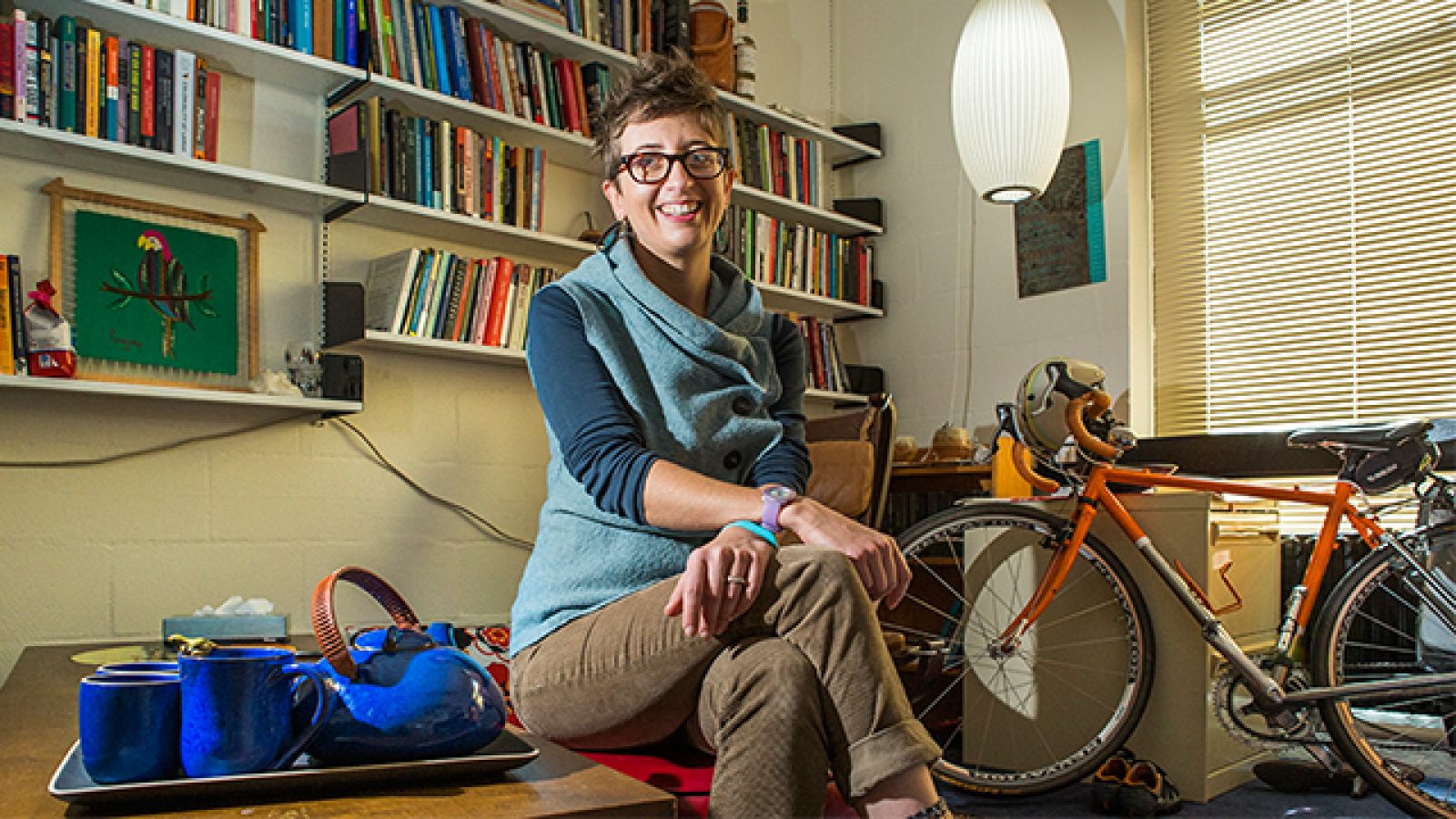Microfinance impact mixed: ANU study

Dr Caroline Schuster. Image by Stuart Hay.
Research by Australian National University (ANU) anthropologist Dr Caroline Schuster has found microfinance loans are not as effective for fighting poverty as many had predicted.
The aim of microfinancing is to provide loans to disadvantaged people, mostly women, who would otherwise not have the capacity to borrow money. It works by allowing 15-20 people to come together in a loan bid and be jointly responsible for repayment. If one person falls behind in payment, the group is collectively in default.
In 2005, UN Secretary General Kofi Annan said microfinance was a critical anti-poverty tool, empowering the poor, particularly women, and their communities. With significant capacity for growth, multi-national banks such as HSBC and Citibank are increasingly investing in microfinance projects.
Dr Schuster, of the ANU School of Archaeology and Anthropology, spent two years studying the effects of a microfinance development project for women in the Paraguayan town of Ciudad del Este. She says the results, published in a new book, have been mixed and can often cause more harm than good.
“Civdad Del Este is right on the border of Brazil and Argentine, it’s known as a hotbed of smuggling illegal guns, drugs and contraband. It’s the smuggling capital of Latin America,” Dr Schuster said.
“Aside from the smuggling economy, small-scale loans were not really very effective at building businesses for women.
“Success itself was often a double-edged sword. Some of the most difficult cases came up when a successful borrower died suddenly in the middle of a loan cycle and her group had to take over her payments.
“In one such case, she was the president of her group and was automatically approved for a large loan—ultimately, this actually broke the group and sent them spinning into default.”
While repayment rates of microfinance loans have been very high (up to 98 percent), Dr Schuster said they also caused social problems within the community.
“It puts women’s relationships with one another and with their families under terrible strain,” she said.
“Joint obligation, peer pressure and public shame, are very good at making and selling a financial product.
“What I came to see through fieldwork is that it also added an extra burden on women to manipulate and use their relationships with their friends and families in new and surprising ways.”
Dr Schuster’s book, Social Collateral, is available for purchase online.